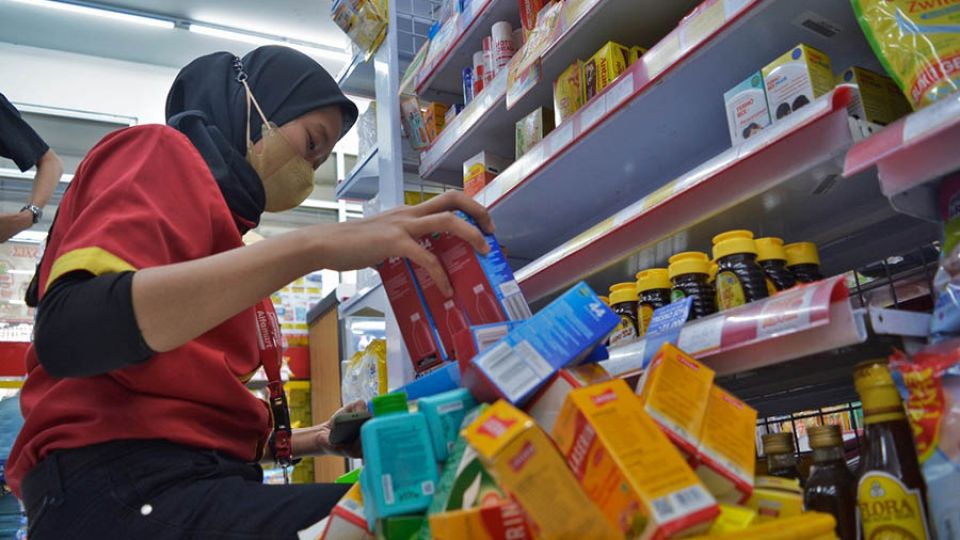October 25, 2022
JAKARTA – The government has attributed the recent spike in acute kidney injury (AKI) cases to toxic levels of chemical compounds in medicinal syrups, as it considers a potential criminal investigation against drug manufacturers whose products have been linked to 141 child deaths this year.
Food and Drug Monitoring Agency (BPOM) chief Penny Lukito revealed on Monday that the agency had singled out two pharmaceutical companies that produced medicines with unacceptable levels of ethylene glycol (EG) and diethylene glycol (DEG).
Commonly found as contaminants in the solvents of syrup-based medicins, EG and DEG are thought to be the cause of Indonesia’s spike in AKI cases and deaths.
To this end, Penny said the BPOM would work with the police to build a criminal case against the two companies over the composition of ingredients used in their products. She did not identify the two firms in question.
“There is indication that EG and DEG levels found in these companies’ products more than exceeds [safe levels of] contaminants,” she told reporters after a meeting with President Joko “Jokowi” Widodo at the Bogor Palace in West Java.
Previously, the BPOM was under pressure to explain how it managed to greenlight a number of products for market that scientists have found to be linked to kidney failure in over 100 cases involving children under the age of six.
But Penny said the agency had fulfilled its mandate and observed all prevailing regulations in inspecting products circulating in the market; she insisted it was the responsibility of pharmaceutical companies – and not the BPOM – to check the level of contaminants found in their own products.
“There is no international standard to be used as a reference to check EG and DEG content [in medicine],” she said.
“In light of the situation, there may be several points [in a medicine’s production supply chain] that were previously unsupervised that must now be checked, and the standards for it strengthened.”
International cues
Health Minister Budi Gunadi Sadikin said the number of AKI cases had risen to 251 this year alone, and that among this figure, 141 cases had proven fatal. This puts the fatality rate of an ailment that primarily affects children under five years at a staggering 57.6 percent.
Budi insisted on Monday that the case spike only started occurring in August, and that the ministry had taken note and conducted a number of probes in response. A pathological examination in September ruled out any viruses, bacteria or parasites as the cause of AKI.
The ministry then took cues from an Oct. 5 World Health Organization (WHO) report that linked the deaths of 70 children in The Gambia to unacceptable levels of EG and DEG in paracetamol syrups circulating in the West African country, and began conducting toxicology tests.
It revealed that seven out of 10 children tested had traces of the toxic chemical compound in their urine or blood. The ministry also did biopsies on deceased patients and found similar results.
Lab examinations of the medicines found in the homes of afflicted children also confirmed the presence of these compounds.
“Based on the WHO report, the biopsy results and the discovery of [EG and DEG] in medicines in [afflicted] children’s homes, we concluded that the cause [of the spike in AKI cases] are these chemicals, which are impurities found in solvents [for syrup-based medicines],” Budi said.
When asked why AKI cases only started to rise in August, Budi said it was most likely due to changes in the raw ingredients of the medications, signaling a potentially larger issue in the supply chain.
He only said that the government now had data on recent imports of raw ingredients and would share it publicly at a later time.
Indonesia importsmost of its raw ingredients for medicines from China and India, according to the ministry. In The Gambia, AKI cases were traced to the product of an Indian pharmaceuticals firm that has since halted production.
Syrup ban
Prior to Monday’s conclusion, the government took a number of precautions last week by ordering health facilities and medical professionals to temporarily stop prescribing all kinds of syrup-based medicines and drug stores to temporarily halt the sale of such products until further notice.
The policy, Budi said, had proven effective, particularly since hospitals nationwide have reported a drop in the number of children showing AKI symptoms, abnormally low urine output or failure to produce urine.
Based on input from the Indonesian Pediatric Association (IDAI), Budi said the government was considering revoking the ban for a handful of medicines that are used to treat critical illnesses such as epilepsy, so long as these medicines are prescribed by a doctor.
On Sunday, the BPOM issued a list of 133 medicinal syrups that do not use the four listed dangerous solvents – propylene glycol, glycerol, sorbitol and polyethylene glycol – as ingredients, and are therefore completely safe to use.
An update to the medicinal syrup ban is expected to be released soon in the form of a Health Ministry circular.


